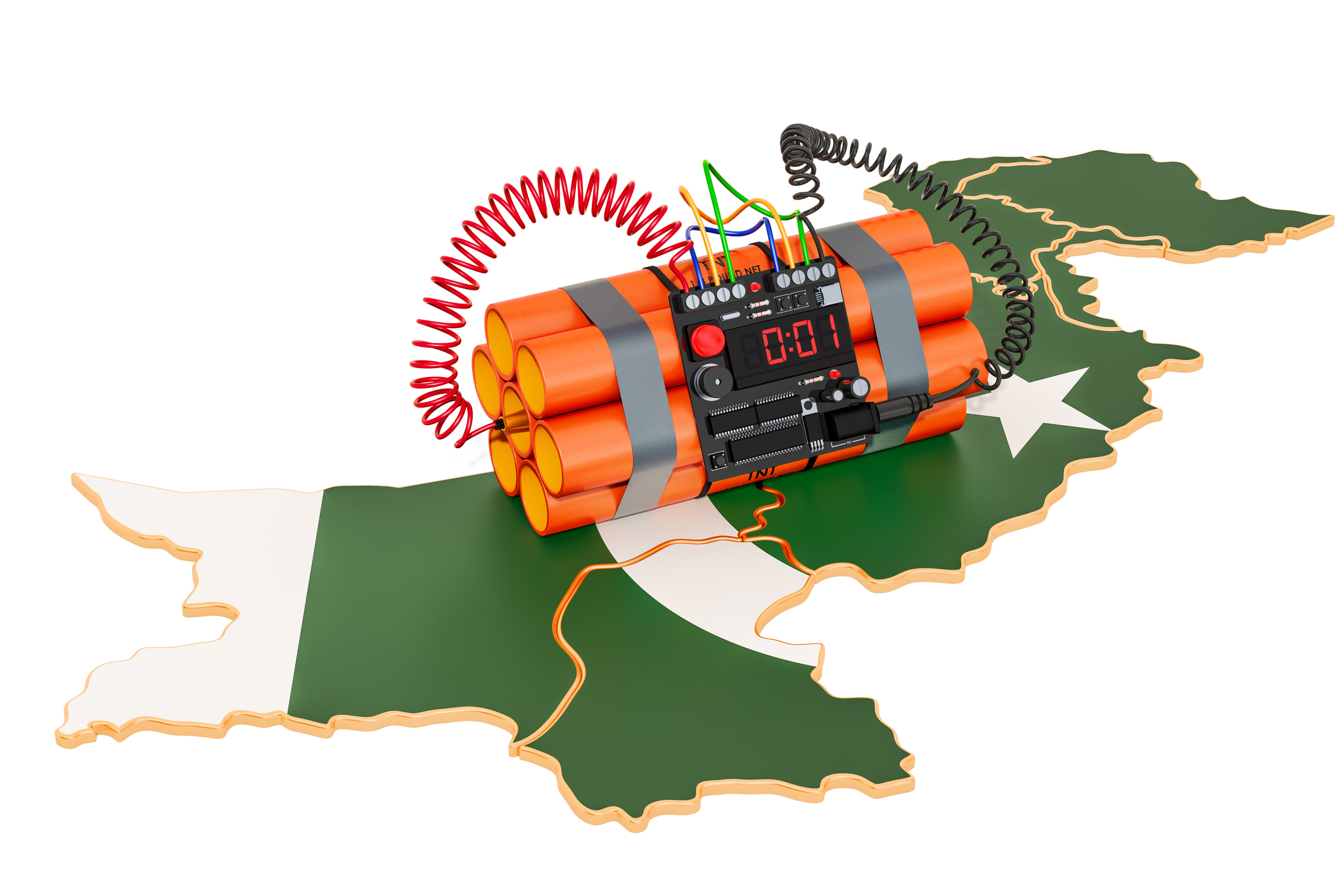
The recent capture of high-profile terrorists, including Nasarullah alias Maulvi Mansoor, a key commander of the Tehreek-e-Taliban Pakistan (TTP) Shura, marks a significant achievement for Pakistan’s intelligence agencies. This milestone, announced by Balochistan’s Home Minister, sheds light on the escalating security challenges in the region, primarily driven by operatives based in Afghanistan with alleged support from India.
Intelligence-driven operations have exposed TTP’s plans to expand their terror network within Balochistan, prompting the federal cabinet to approve Operation Azm-e-Istehkam. Nasarullah’s confessions reveal the multifaceted threats facing Pakistan, highlighting the urgent need for a comprehensive counter-terrorism strategy. A primary concern is the use of Afghan territories as safe havens by banned terrorist groups to launch attacks on Pakistan. Despite numerous diplomatic efforts, the interim government in Kabul has failed to dismantle these sanctuaries. Evidence suggests that the Taliban’s tacit support for anti-Pakistan elements jeopardizes national security and strains bilateral relations.
The Taliban’s interim government has not only ignored Pakistan’s security concerns but is also implicated in supporting terrorists. This poses a clear and present danger, with terrorist activities being orchestrated from Afghan soil without consequence. The international community must recognize the threat posed by the Taliban’s leniency towards such groups, which could destabilize the entire region.
One of the most alarming revelations from Nasarullah’s confession is the strategic alliance between the TTP and Baloch separatists. Despite ideological differences, these groups are collaborating under common handlers, aiming to destabilize Pakistan. This alliance exemplifies the extent of foreign manipulation, with India’s RAW agency allegedly orchestrating these operations. Nasrullah’s disclosures about meetings between TTP leader Noor Wali, BLA Majeed Brigade militant Bashir Zeb, and RAW officials in Kabul highlight India’s involvement in destabilizing Pakistan. This nexus is a grim reminder of the hybrid warfare tactics employed against Pakistan, with proxy handlers using extremist and separatist elements to further their objectives.
The confessions also reveal that the TTP operates with the support of influential elements within the Taliban government. This emboldens terrorists and complicates Pakistan’s counter-terrorism efforts. Internal divisions within the TTP, where Noor Wali exploits jihadist rhetoric and uses non-Mehsud Pashtun foot soldiers for suicide attacks, highlight the complex dynamics within terrorist organizations.
The overarching goal of these terrorist groups is to undermine Pakistan’s sovereignty by targeting its armed forces and law enforcement agencies. The recent surge in terrorist attacks in Khyber Pakhtunkhwa and Balochistan aims to sabotage the China-Pakistan Economic Corridor (CPEC) and destabilize the country. The sacrifices made by Pakistan’s security forces to restore peace must not be undermined by foreign-sponsored terrorism. To combat this multifaceted threat, Pakistan needs a broad-based counter-terrorism strategy involving all segments of society. A comprehensive approach, supported by a broad political consensus, is essential. While the Pakistan Army has been central to the fight against terrorism, all state institutions, including the police, judiciary, legislature, political parties, and media, must play proactive roles.
The swift intelligence-based operations in KP, which neutralized terrorists involved in heinous attacks, underscore the superior intelligence capabilities and professional standards of Pakistan’s security forces. The recent directive from the Prime Minister to launch Operation Azm-e-Istehkam should not be seen through a politicized lens. Delays in consolidating counter-terrorism efforts could be detrimental to national stability.
Provincial governments play a crucial role in eradicating terrorism and extremism, as outlined in the National Action Plan. National security is a shared responsibility between federal and provincial authorities. The disappointing response from the opposition, particularly PTI, on counter-terrorism operations serves the interests of forces inimical to Pakistan’s stability. PTI, which has been in power in KP for three consecutive terms, must introspect on its counter-terrorism failures at the provincial level amid the resurging terrorism wave.
The commendable track record of Pakistan’s armed forces and intelligence agencies in counter-terrorism reaffirms the nation’s resolve against terrorism. It is high time for the international community to acknowledge the rogue activities of Indian state institutions and their impact on regional stability. The prolonged inaction of the Taliban regime against anti-Pakistan proxies on Afghan soil could have unimaginable consequences for regional security. The internationally unrecognized regime in Kabul must understand the ramifications of its flawed approach in light of Pakistan’s unwavering resolve against terrorism.
The arrest of high-value terrorists, including TTP commander Nasarullah, is pivotal in Pakistan’s fight against terrorism. It highlights the complex and evolving threats facing the country and underscores the need for a comprehensive and united counter-terrorism approach. Nasarullah’s confessions shed light on the intricate web of alliances and support systems sustaining terrorist activities against Pakistan. The international community must recognize the gravity of the situation and support Pakistan in its efforts to ensure regional stability. As Pakistan moves forward with Operation Azm-e-Istehkam, it is imperative that all state institutions, political entities, and segments of society unite to uphold the nation’s sovereignty and security.
The success of Pakistan’s security forces in recent operations must serve as a catalyst for a more cohesive national strategy. Combating terrorism requires not just military might but also political will and societal support. The revelations from Nasarullah’s confessions are a call to action for all stakeholders in Pakistan and beyond to work together against the shared threat of terrorism. Only through a united front can Pakistan safeguard its sovereignty and ensure a stable and secure future for its citizens.
